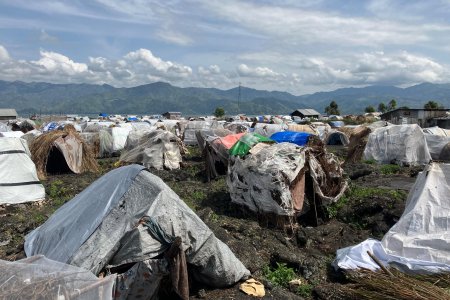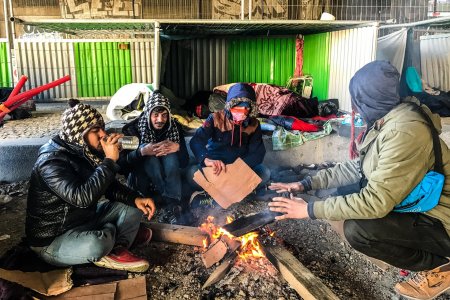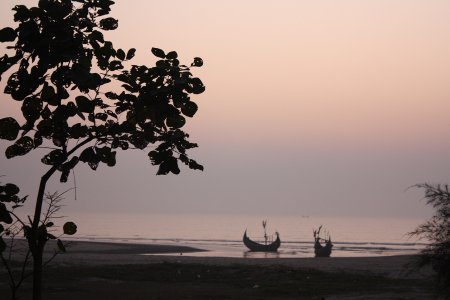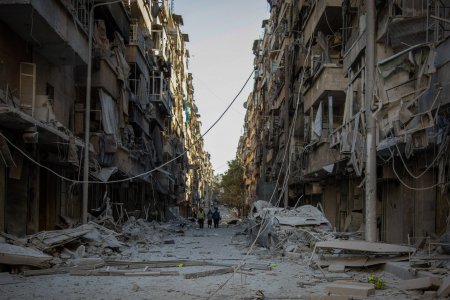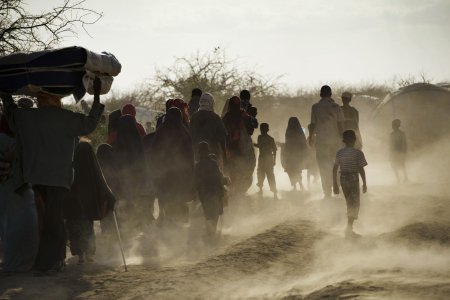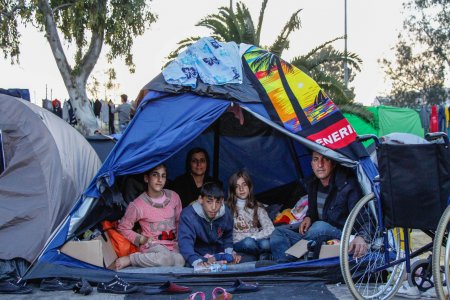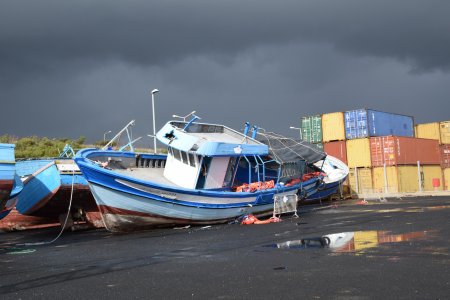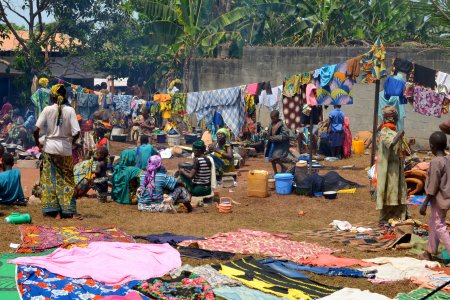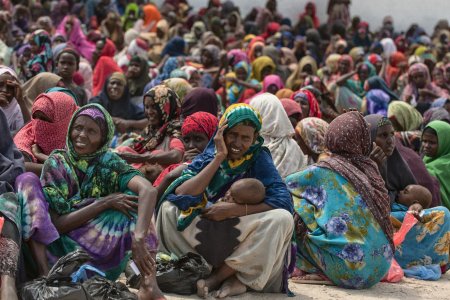What role does humanitarian action play in population displacements?
This work focuses on how humanitarian organisations operate, including their members, self-portrayals, messages, practices and cultures. Aid to refugee, displaced, deported, exiled and interned populations plays a central role in humanitarian action both now and in the past. What types of aid are provided to internees and displaced persons? What kinds of obstacles and dilemmas do these organisations face? What sorts of practical, political and ethical questions are raised by the participation of aid groups in population displacement and internment policies?
Goma’s IDPs: a catastrophe in plain sight
Michaël Neuman describes his visit to Goma’s IDP camps, where he spent two weeks. He shares his dismay at the low level of assistance provided by the aid sector, especially when we recall that the Sphere standards, born precisely out of the failure of the humanitarian response in this same region of Goma in the mid-1990s, were conceived and championed by all of us.
Libya: the forgotten ones
Michaël Neuman spent ten days in Libya with Médecins Sans Frontières teams working in detention centres for migrants. From his stay, he brings back the following impressions that illustrate the gloomy situation of the people who are held there, for months or years, and the even more difficult situation of all those subject to kidnapping and torture.
Hospitality
Thanks to the migrant crisis, or the reception crisis as it would be more appropriate to call it, the issue of hospitality is back in the forefront. On 17 May, the Maison des Métallos organised a conference with two social science researchers - Michel Agier and Benjamin Boudou - and an NGO manager Cécile Poletti to discuss existing tensions between private hospitality and public hospitality.
The fall of Aleppo: a turning point in the Syrian conflict?
Interview with Jean-Hervé Bradol, MSF-Crash research director, and Matthieu Rey, CNRS researcher attached to IREMAM (Muslim and Arab World Research Institute) and member of the WAFAW research programme.
Humanitarian Aid, Genocide and Mass Killings. MSF, The Rwandan Experience, 1982-97
Interview with Jean-Hervé Bradol and Marc Le Pape. The book is published by Manchester University Press and will be out in January 2017.
From Dadaab to Calais: what are the alternatives to the refugee camp?
MSF Crash's directors of studies, Rony Brauman and Michaël Neuman talk about MSF's refugee camp experience.
In Europe, confront cynism with hospitality
World Refugee Day will have served as a near universal reminder of the cynicism of European immigration and asylum policies: dissuasion that sacrifices thousands is the sole pillar of its policy for dealing with people fleeing war, persecution or untenable living conditions.
Boats
This post tells of the 'Boat for the Vietnam' episode, the MSF Search and Rescue operations to be launched in the Mediterranean and the notable absence of the Australian section of MSF from any debate on refugee policy in that country.
Central African Republic: Questions around a forced exodus
For a few months now, the world's response to the organized expulsion of the Muslim community out of the Central African Republic (CAR) can best be described as strikingly mute.
Somalia and the International Status Quo in Refugee Management: When is the right time to say the big F word?
Humanitarian assistance has become entangled with migration and security agendas. Indeed, most humanitarian assistance in Somalia and in refugee camps is subordinated and in support of these two agendas.

